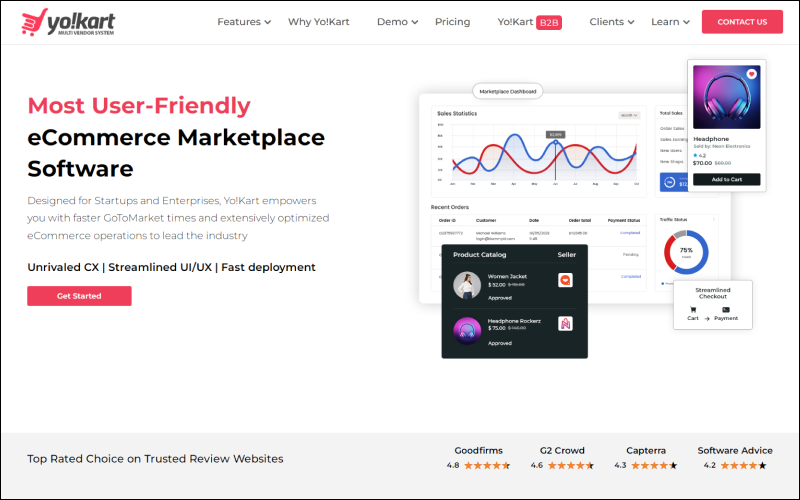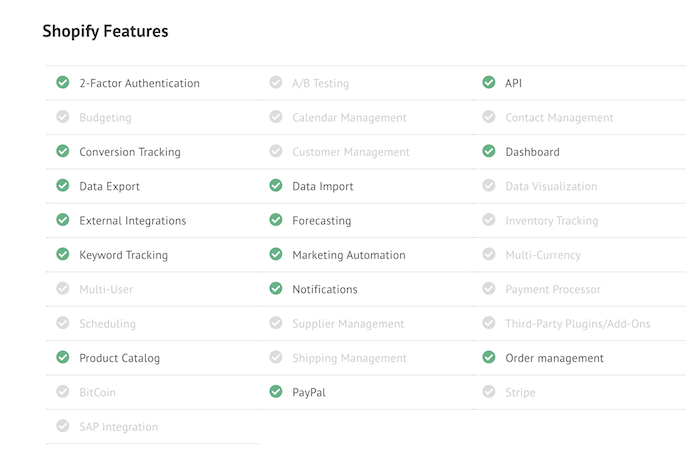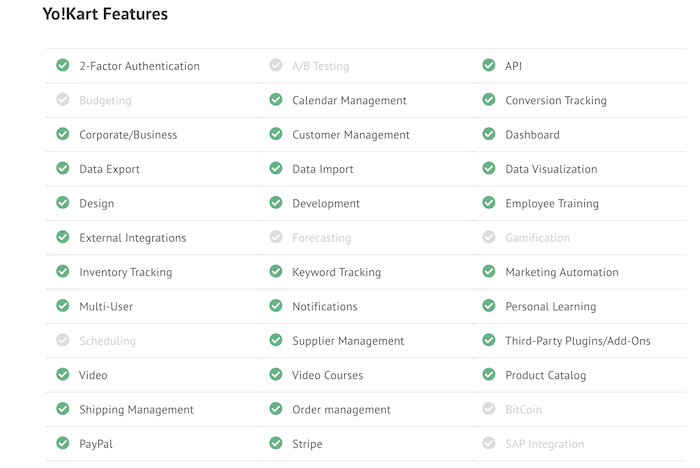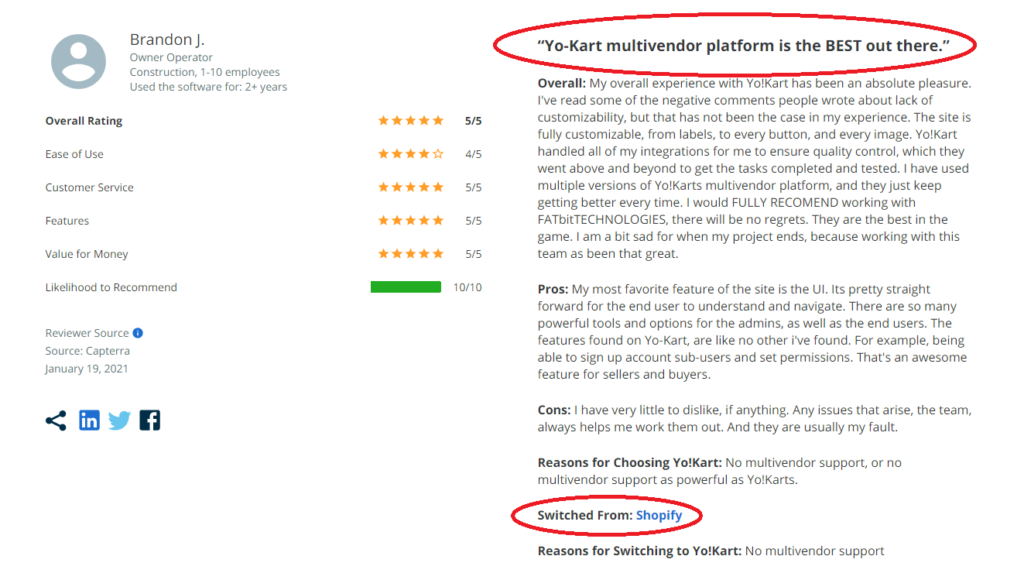Last Updated: April 26, 2022
Investing in eCommerce is a wise choice since the eCommerce industry has grown exponentially in recent years with the increasing number and sales of online businesses. By the end of 2020, there will be 2.05 billion online shoppers across the globe, according to Statista. This explains why businesses and entrepreneurs are so keen to launch an online store.
But the problem is, since there is no entry barrier to this field and the number of competitors is huge, many store owners have to shut down their business after a couple of months because it is difficult to survive in an oversaturated market like eCommerce.

It is wiser for store owners to quickly realize that it’s very hard to survive with just an eCommerce store. What they need is an online store that can support hundreds of vendors and thousands of products, in other words, a multi-vendor marketplace.
A multi-vendor marketplace is an eCommerce platform that allows multiple vendors to register and sell their products from an individual storefront. Multi-vendor stores provide shoppers with a huge list of products to choose from and sellers with a bigger base of customers. While the multi-vendor marketplace has the technical capabilities to support many sellers simultaneously, the regular online store only supports one seller.
Considering the significance and the benefits of multi-vendor marketplaces for sellers, buyers and owners, we know that choosing a suitable platform to build multi-vendor marketplaces is of great importance. In this article, we will discuss a comparison between Yo!Kart and Shopify Multivendor, another competitor in the multi-vendor industry. In case you missed the first part, check out our Yo!Kart and Cs-Cart multi-vendor comparison.
Since this is a highly detailed comparison of Yo!Kart and Shopify, hereÔÇÖs a quick table of contents to walk you through what we will be covering:
Table Of Content:
What is Shopify?
What is Yo!Kart?
Pricing
Features
3rd Party Integration
Customizability
Support
Why Yo!Kart is the Best Alternative to Shopify Multivendor – Overview
What is Shopify Multivendor?
Shopify is a Software as a service (SaaS)-based eCommerce platform that helps you create an online store without extensive hardware set-up. It has a third-party Multi-Vendor Marketplace application by Webkul to convert your eCommerce store into a fully functional multi-vendor marketplace.

The Shopify Multi-Vendor plugin allows you to add unlimited vendors, products, and sync products from other eCommerce stores.
What is Yo!Kart?
Unlike Shopify multivendor system, Yo!Kart is a License-based eCommerce multivendor platform that provides complete control to the business owner to build a marketplace. It helps eCommerce startups, existing online vendors, and retailers to launch a multivendor store successfully. With all the features required for a successful multi-vendor marketplace, Yo!Kart soon became the platform of choice for many merchants thanks to its easier setup and implementation process, powerful reporting tools, SEO features, and expert assistance.

Being a standalone multivendor eCommerce platform, Yo!Kart is undoubtedly among the best alternatives to Shopify Multivendor.
Yo!Kart and Shopify Multivendor – Break-into-pieces Comparison
Pricing
Shopify pricing includes three main plans ranging from $29/month to $299/month. The cheapest one is Basic Shopify, which gives you all the basic eCommerce functions. This plan is suitable for starting a business. The next plan, ÔÇ£Shopify” comes at $79/month and has everything you need to grow your business with some additional features. And the most expensive plan, ÔÇ£Advanced ShopifyÔÇØ, comes with advanced eCommerce features. This plan is suitable for medium and large-scale businesses to grow without limit. Besides the cost of setting up a Shopify store, you will need to pay $10 – $45/month for the Multi-Vendor Marketplace app. All the plans include a 14-day trial.
Yo!Kart doesn’t charge you monthly as Shopify does. Instead, it comes with one-time packages starting from $1249 Plan (GoQuick). They offer 4 unique multivendor marketplace packages tailored to meet your marketplace business needs. All the packages are self-hosted and include free installation, zero transaction fee, and a lifetime license.┬áYou can pick a plan best suited for you.
In addition, Yo!Kart offers digital marketing services free for 1 month. Their experts will help you launch a custom marketing plan with your own content marketing strategies, competitive analysis, and website traffic generation techniques, among others.In the short term, Shopify Multivendor Marketplace might be cheaper than Yo!Kart but in a long-term scenario, Yo!Kart offers a more reasonable pricing policy and that gives you another reason to consider it as an alternative to Shopify Multivendor.
Features

If you use Shopify, the Multi-Vendor Marketplace plugin is a great tool to convert your store into a marketplace. It offers a variety of multi-vendor features such as 2-Factor Authentication, Conversion Tracking, Product Catalog, Marketing Automation, Order Management, External Integrations, and more.
In addition, Shopify also has many additional feature apps.
- Payment Methods such as Stripe Connect for split payment between Admin and Seller
- Auction for Sellers
- Mobile App for Customers
- Shipping methods such as Australia Post, Canada Post, EComm Express, AirSpeed, UPS, FedEx, Vamaship, Bluedart available for Sellers
- Allow “Store Pick Up”
- Sync your Seller products from their own eCommerce store (Shopify, Prestashop, Etsy, WooCommerce)
- Sellers on Vacation? Now update the Customer about the same using this app.
- Customers asking questions to Sellers directly
- Admin can assign badges to sellers
- Booking can be added with Products.
- Membership plan for Sellers
- Favorite Product/Seller
- Multi-vendor API
- Admin Staff (can add staff member)
- Commission Management: ItÔÇÖs the admin share in the seller’s order.
- Global Commission: Applied on all the sellers
- Individual Commission for Seller: If an admin wants a different commission rate for individual sellers then he/she can do it with an individual commission. Also, the commission can be either a fixed amount or percentage-wise for global as well as individual commission.
Please note that you have to pay a certain amount to have these Feature Apps on your website.

It seems like in the game of multi-vendor features, Yo!Kart has been leading this round by offering more features than Shopify does. It also offers robust reporting, with real-time tracking to see how your sales are going. Periodical reporting is included to help merchants notice market trends and tailor their offerings accordingly.
Yo!Kart also has an inbuilt CMS to get your customers hooked up to your website through regular blogs or postings. Plus, it includes some notable marketing features like PPC advertisements, Affiliate modules, social media sharing, and many more.
Above are the highlighted features that Yo!Kart offers. You can check a more detailed list of multivendor eCommerce features on Yo!Kart website.
Other notable features of Yo!Kart includes:
- Catalog System and Private Products
- PPC Modules for Sellers
- Stripe Connect for Vendor Payouts
- Easy Order Management
- Multilingual with RTL Support
- Custom Push Notifications
- Easy Product Comparison
- Pre-integrated with QuickBooks, TaxJar, Avalara, ShipStation, etc.
3rd Party Integration
An eCommerce store hardly runs independently of other tools because they are crucial for the success of the business. These tools may include ERP systems, order management systems, tax tools, shipping platforms, optimization tools, and many more
Since Shopify is SaaS-based, Shopify store owners are tied to using SaaS APIs for integration with existing business systems. It is not always possible to integrate an eCommerce store with all of your existing business applications because the APIs are limited. Unfortunately, there would be no technical support available from Shopify support teams. Our suggestion is that you should have the right team in place, as any integration on the SaaS approach will require development time.
With License-based multivendor eCommerce platforms like Yo!Kart, owners have the luxury to get custom integrations generated for the eCommerce store to incorporate existing business system applications seamlessly. Yo!Kart can be integrated with almost any API. It also comes pre-integrated with Paypal, Stripe Connect, Google Analytics, ShipStation, Taxjar, Avalara and other popular third-party applications.
Customizability
Shopify is best known for its huge library of themes and plugins. It offers over 70 themes including paid and free ones to choose from for your eCommerce store. You can modify colors, language strings, and more either by yourself or you can work with a Shopify development company to customize the front end. Even better, you can buy a theme that meets your needs out of the box.
On the other hand, Yo!Kart has a dedicated team that delivers additional customization. You can customize your website however you want, but it requires some technical experience. Yo!Kart comes with a wide range of templates that go with your specific niche (fashion, electronics, furniture, sports, and grocery) perfectly. These ready-to-use themes & intuitive designs will bring a satisfying user experience making shopping a pleasant experience. In short, Yo!Kart makes it easy for business owners to target the right audience. This is a big plus for Yo!Kart over Shopify Multivendor Plugin in this round.
Support
Besides the basic support such as FAQs, blogs, Documents, Tutorials, the biggest advantage of Yo!Kart support is that it offers FREE 12-months technical support for all Yo!Kart packages to resolve any bugs/errors found in the system. You can also opt for paid technical support after 12 months if you want. Please note that the 12-month Free Technical Support becomes invalid for those who have done any customization in Yo!Kart script either on their own or through any 3rd party.
There is no technical support for the Shopify Marketplace apps. However, you can still use all the support from Shopify for eCommerce stores. Shopify provides help via various channels. including phone, email, and live chat. Plus, you can also go to its community forum, help center, business courses, and video tutorials. Other than that, you can hire professional Shopify experts to ensure optimal problem resolution and seamless business operation.
Client Reviews
Let’s go through a review on Capterra where the user stated that he switched from Shopify to Yo!Kart multi-vendor eCommerce platform. He mentioned that he switched because ShopifyÔÇÖs multi-vendor system is not as powerful as Yo!Kart.
Check the complete review here.

Conclusion
To sum up, Yo!Kart has surpassed Shopify in the game of Multi-Vendor. Yo!Kart has all the necessary features for a multi-vendor marketplace, most of which are additionally charged in the Shopify Plans. Yo!KartÔÇÖs all-in-one package for $1249 is not bad. Other than that, the report can amazingly predict trends, and the frontend has plenty of features for buyers to play around with.┬á
The only limit of Yo!Kart is that it is not a platform for beginners. In other words, you can customize this design however you want, but it requires some technical skills to modify the design to something new.
In contrast, Shopify could be the best platform for beginners to create a beautiful website without mad technical experience. But in the multi-vendor game, Shopify could not be an optimal solution for merchants to choose from, as it still lacks some important features for a multi-vendor marketplace. That means you have to pay extra for the additional applications on your website. In case you want to migrate your current website to Yo!Kart, we highly recommend using LitExtension, a shopping cart migration expert. You can migrate all of your data including products, customers, orders to the target site quickly, seamlessly, and at a reasonable price too. Also, a FREE DEMO is available if you want to know how the migration works.
We hope that this article will help you choose a suitable platform for your marketplace. Trusted by 2000+ eCommerce businesses across different niches such as Liquor Marketplace, Groceries, B2B Wholesale, Diamond B2B Trading, and more, Yo!Kart is a popular destination to start a multi-vendor marketplace and undoubtedly the best alternative to Shopify Multivendor. Should you have any other questions, please reach out via the support center.
Frequently Asked Questions:
Q1. Which is the best alternative to Shopify Multivendor Platform?
Yo!Kart is the leading alternative to Shopify multivendor platform. Unlike Shopify that uses multi-vendor plugins built by third-party developers to convert its e-commerce store into a marketplace, Yo!Kart is inherently designed as a multivendor platform. Plus, it is self-hosted, scalable, and highly customizable solution.
Q2. How many people use Shopify?
There are over 1.7 million businesses currently around the globe that use Shopify to empower their eCommerce operations. While these numbers are great, it is interesting to note that very few businesses rely on Shopify for their multi-vendor marketplace needs.
Q3. How many people use Yo!Kart?
Currently, there are over 2000 marketplaces powered by Yo!Kart and the number has been growing continuously. Several entrepreneurs, as well as Fortune 500 companies, trust Yo!Kart to start their online marketplace.
Q4. Is Shopify a multi-vendor platform?
No, Shopify isnÔÇÖt a standalone multi-vendor platform. It is a SaaS-based eCommerce platform that allows you to set up and start an online store. Further, you may install third-party multi-vendor plugins to convert your Shopify store into a multi-vendor marketplace but this charges extra per month.
Q5. Does Shopify have multi-vendor apps?
Yes, there are multi-vendor apps from various third-party service providers listed in the Shopify plugin library.
Q6. What is the pricing difference between Yo!Kart and Shopify?
There is a big difference on the pricing front. For instance, Yo!Kart base package is priced at $1249 – a one-time license fee while Shopify plans range from $29 to $299/month with an additional fee for several integrations or plugins required.



